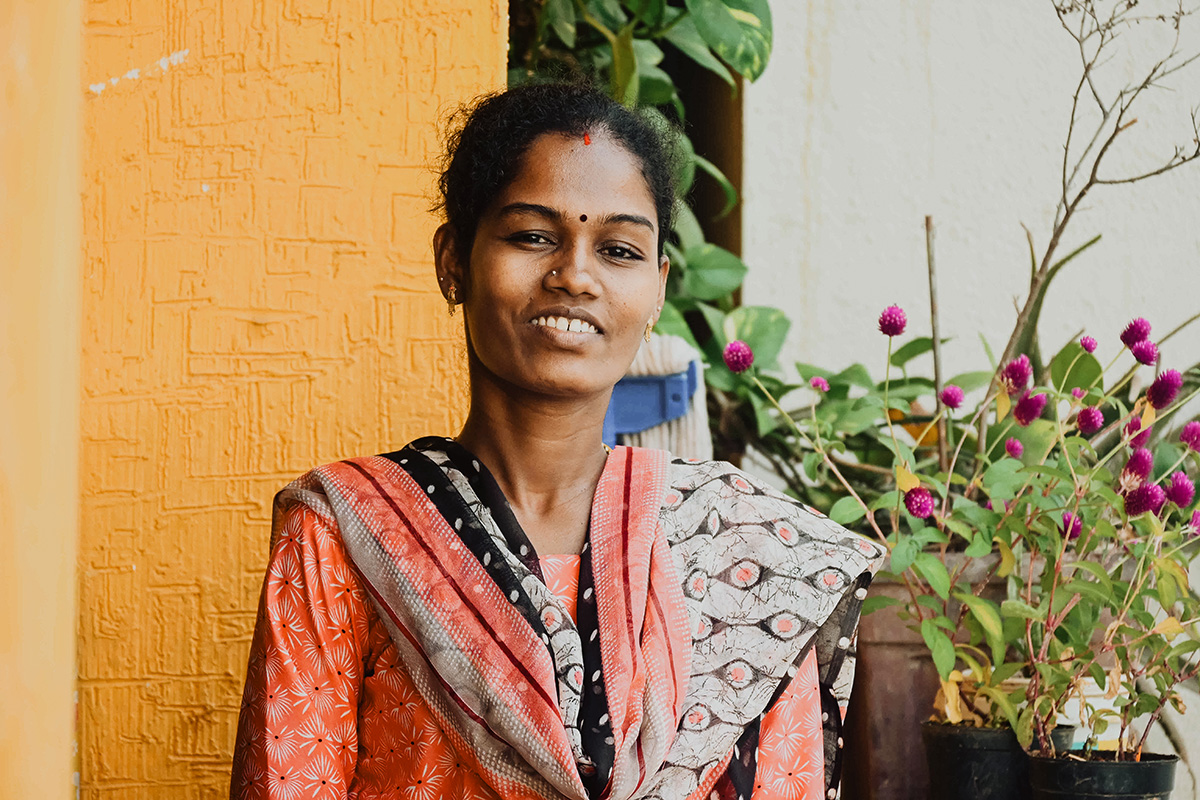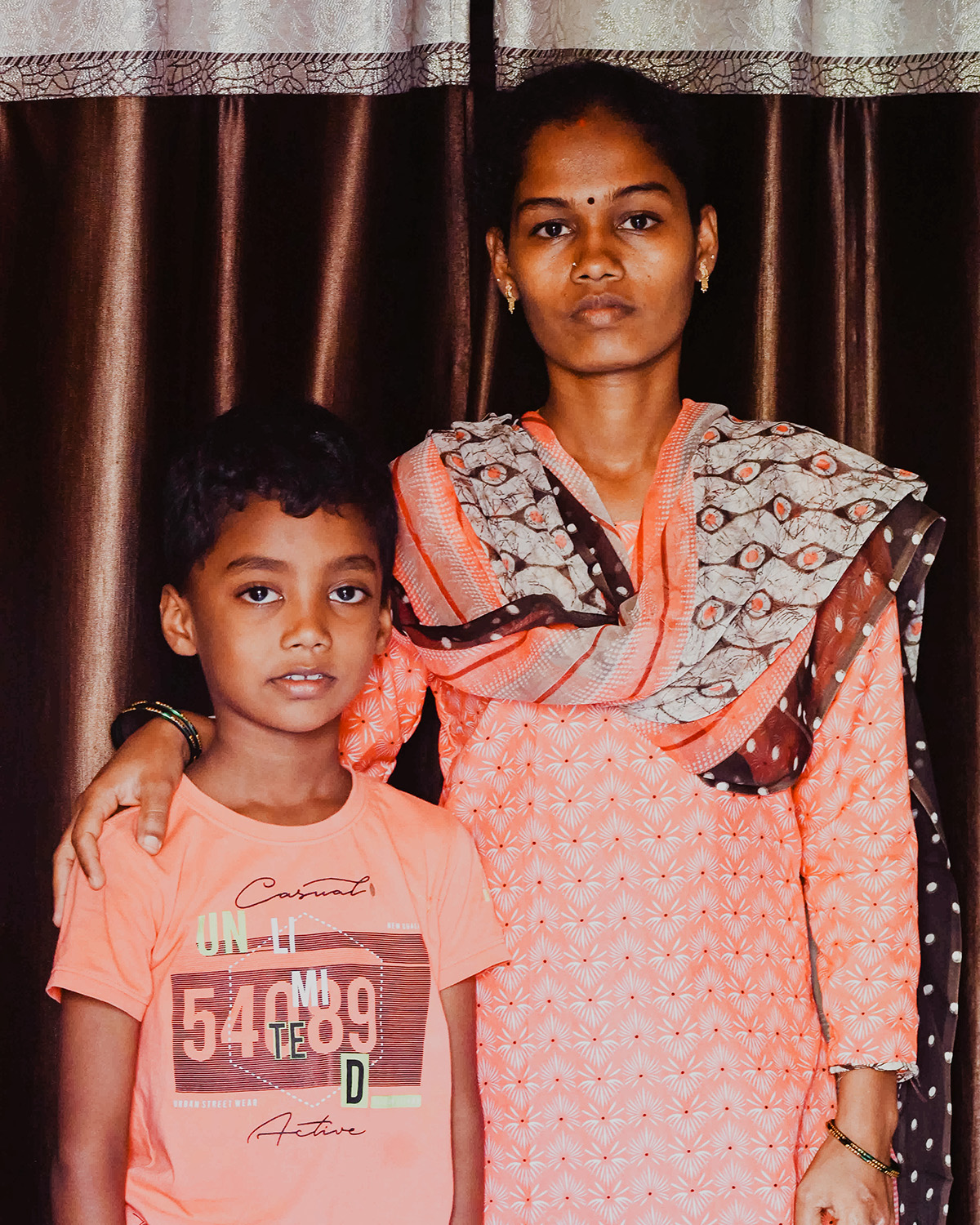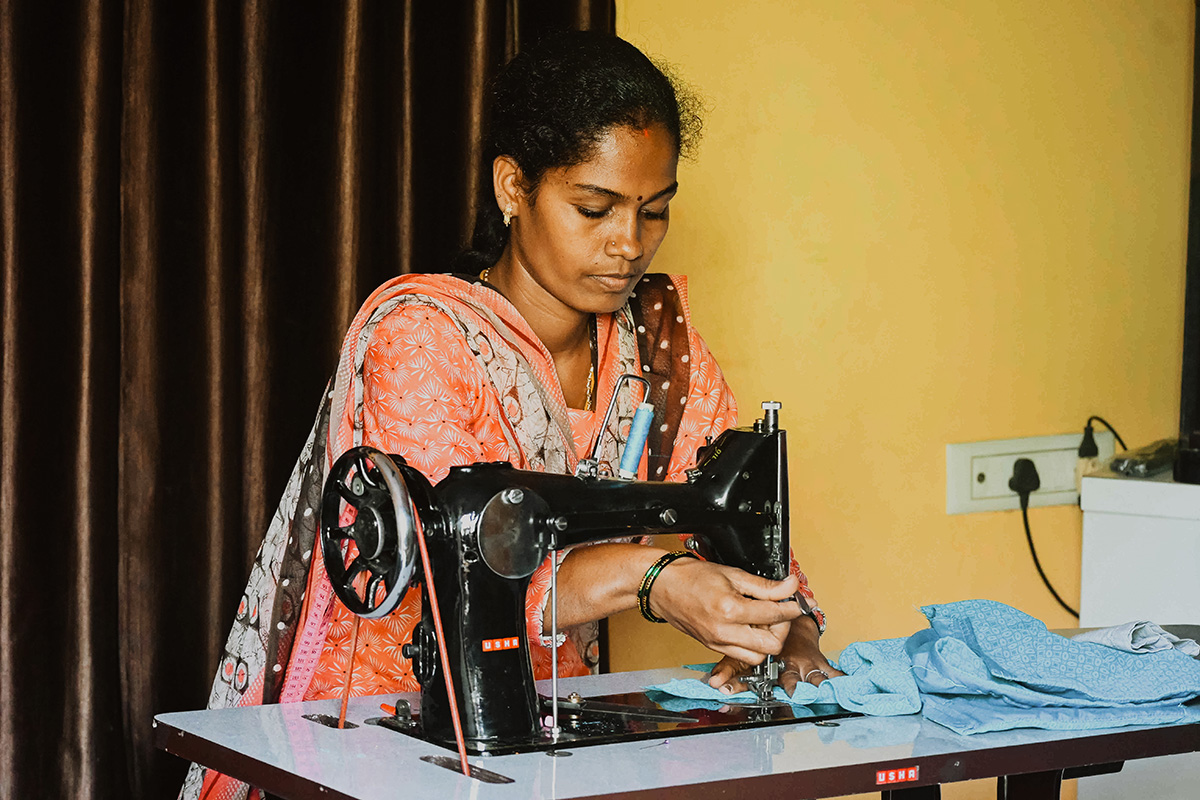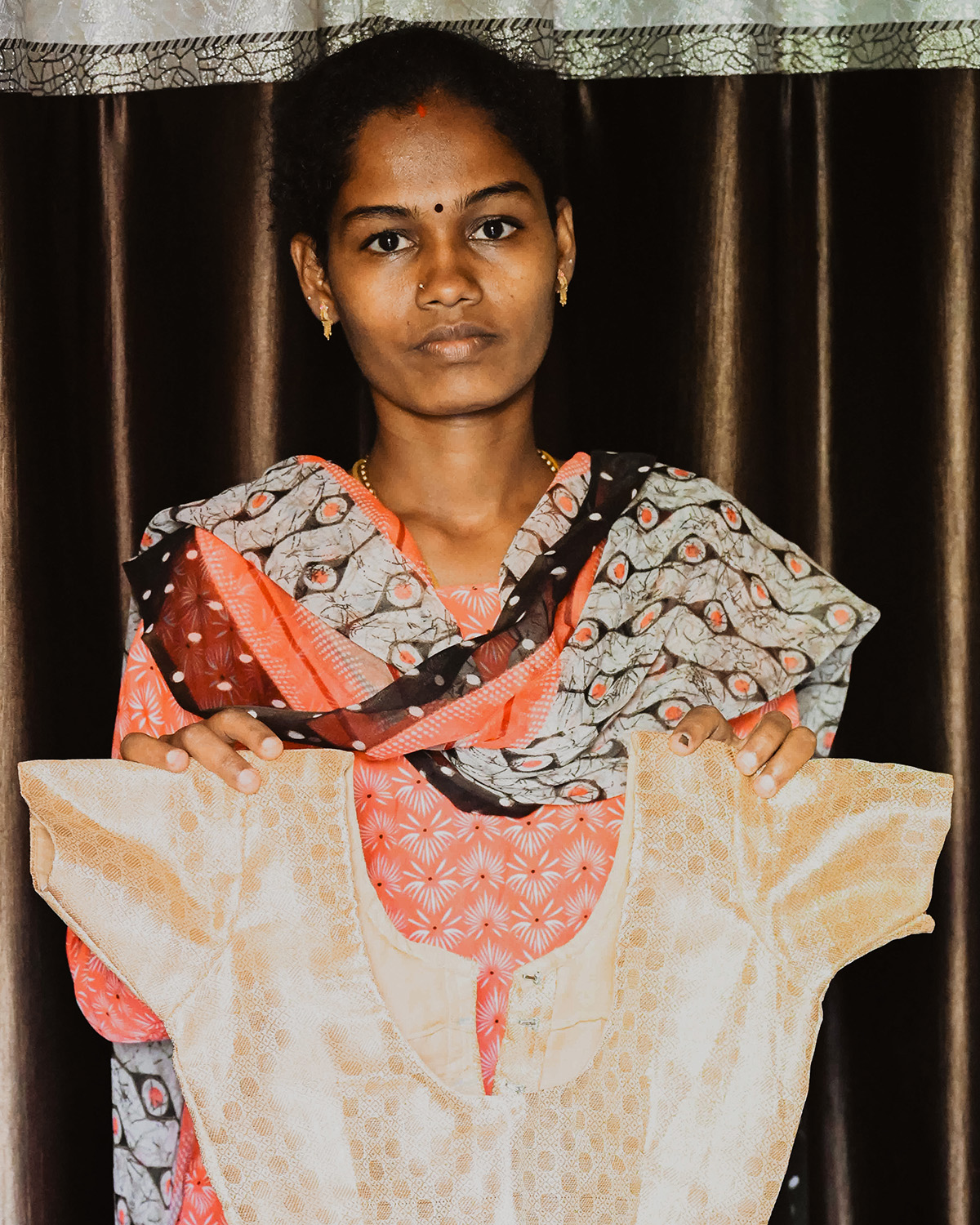The soft whirring of a sewing machine floats throughout a small home in a slum in one of India’s largest cities, Bangalore. Vaideeshwari faithfully spends hours at her sewing table, dutifully stitching intricate details into the garments of clothing she is working on by piecing sections of fabric together, or tailoring the garment to be the perfect fit for the wearer. She toils on… but not aimlessly. No, Vaideeshwari has a real sense of purpose and dignity in her work. She doesn’t see each piece of clothing she completes as just a garment, but as something dignifying. It’s dignifying for the person who gets to call it their own and wear it, yes, but it’s also dignifying for herself.

You see, Vaideeshwari comes from a family that doesn’t have a lot. She and her husband are trying to raise two boys—one in kindergarten and one in third grade—but there was a time when they were struggling to make ends meet. Her husband welds for daily wages, but that means there’s no guarantee of work every day, and at the time, that was the family’s only source of income. The inconsistency was stressful for Vaideeshwari because she wanted to be able to provide for her family. She wanted to help, but she had no education, wasn’t trained, and therefore, couldn’t find any work. Her family was stuck in a cycle, scraping the bottom of the tank just to get by from wage to wage from her husband’s welding.

That was until Vaideeshwari heard about The Hope Venture’s Vocational Training Center where sewing and tailoring skills are taught to many women who are often in situations similar to her own. She eagerly began attending the classes and learned the tailoring skills she needed. Now she can sew, stitch, bind, cut, hem, line, and press! She often makes dresses for women and children, and because of her work, she is able to get income for her family.

Some day, Vaideeshwari dreams of opening her own tailoring shop where she can continue to put her newly learned skills to use as she sews and alters clothing. For now though, even without her own shop, the income she is earning from her handiwork is steady and supplements the income her husband may earn. They can better meet the needs of their family and work towards making sure their sons have an opportunity to complete their education. And this—the ability to work and provide for her family—is what makes the garments Vaideeshwari creates so dignifying as she stitches them together. They represent her opportunity to engage in the act of working to honorably support her family.


